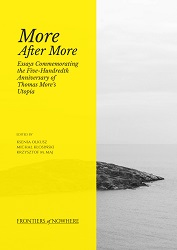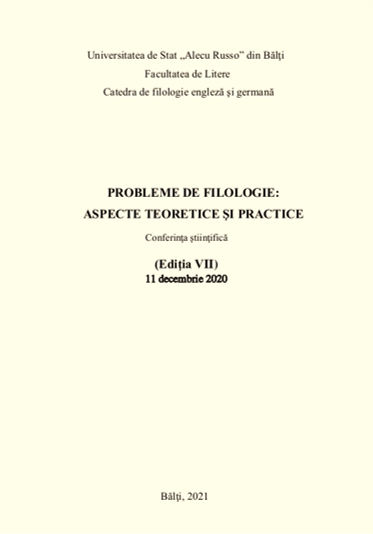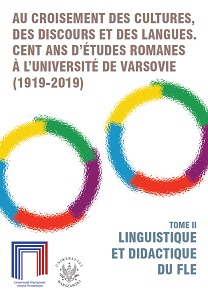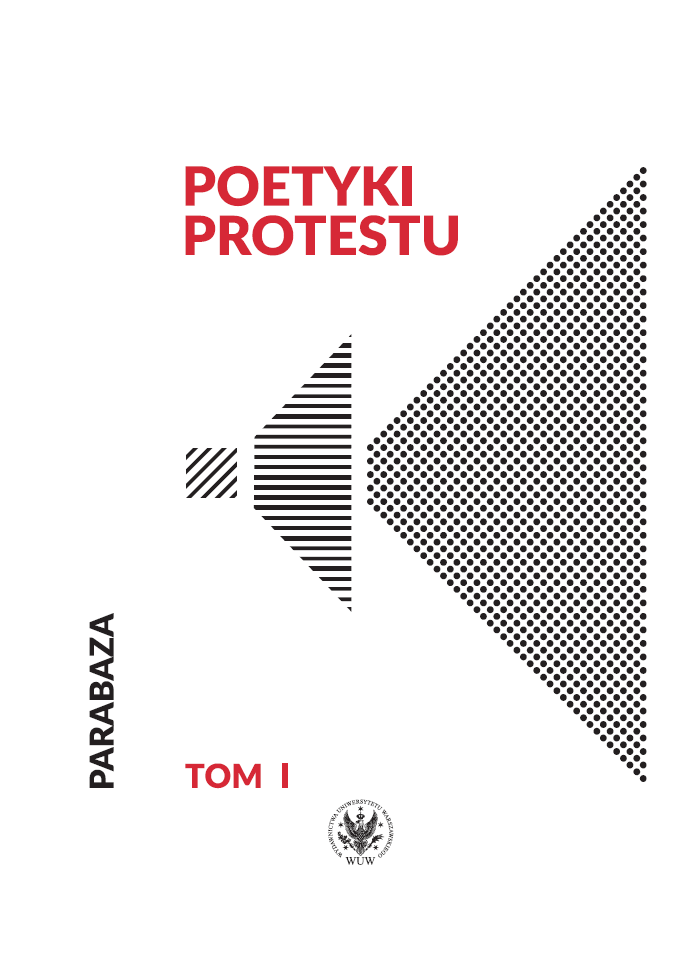
We kindly inform you that, as long as the subject affiliation of our 300.000+ articles is in progress, you might get unsufficient or no results on your third level or second level search. In this case, please broaden your search criteria.


Reading in French is far from easy, in the sense that its letters pose different problems. In this article, we try to describe some regularities in reading the letter "o". Their presentation is based on the principle of the proximity of the letter in question.
More...
The present approach presents a synthesis of ideas concerning a group of German suffixes whose affixation to the adjective, substantive or verbal root of an adjective often implies differences in meaning. Starting from the elucidation of the etymology of each suffix analyzed in the article, both the ways of forming adjectives with these suffixes and the influence of their semantics on the meaning of adjectives are discussed.
More...
The article aims to define the role of teaching vocabulary at the secondary level. Methodists say that teaching vocabulary is an important element in developing and strengthening students' speaking skills. Vocabulary enrichment is very important for cultivating students' ways of expressing themselves and is done systematically in English language lessons. But this is not just about noticing or learning new words. It is shown that in order to achieve the cognitive finality of the new lexical units, they must be explained and used in the right context. It is obvious that a rich vocabulary contributes to effective communication in different situations. But at the same time, we should not forget that vocabulary is taught along with other important components, such as grammar, spelling, and pronunciation.The article also reflects the views of well-known linguists on the role of vocabulary in language acquisition, its aspects and classification, as well as the stages of vocabulary acquisition at secondary school
More...
We report on a project to catalogue and describe the collocations of literary texts from Old French as a first step for a diachronic study of collocations in the Romance languages. We give many examples of collocations by focusing on two structures: the comparatives in "comme N" and "plus que N" (with intensive meaning) and the adverbial construction "à N et à N" (with pejorative meaning).
More...
The specialized language of a specific area constitutes a subsystem of a given language and, therefore, texts can never be purely specialized. Likewise, in everyday life, we do not use only the general language. In this study, we present the Polish translations of extracts from literary texts from different French-language authors, notably from Victor Hugo, Didier van Cauwelaert and Vladimir Volkoff. We indicate the presence of specialized vocabulary and speech in the starting texts and their treatment in the arrival texts. We indicate a few translation errors, but above all we will discuss the importance of the encyclopaedic knowledge of the translator of literary texts. To conclude, we offer some reflections on the training of translators so that they know how to deal with the elements of specialized language in literary texts.
More...
This contribution offers a theoretical reflection on the notion of interdiscourse (shown and manifest) and its relevance in (literary) discourse analysis before analysing a work whose political and literary project is largely based on the inter-discourse: "The Coming Insurrection", by «Invisible Commitee». The notion of interdiscourse in our corpus will allow us to assess the extent of an uncompromising critique of the economy and more broadly of the capitalist system: individualism, homogenization, evidence. We can then consider the subversion induced by interdiscourse, which consists precisely in assuming the need to make common, to include otherness, to pluralize discourses but also practices, and finally to undo the common discourse (economic and political) of its alleged obviousness.
More...
The purpose of this article is to tackle the issue of innovations in language teaching, with an emphasis on the latest trends in education. Currently, three approaches are changing traditional teaching methodology: flipped classrooms, learning by teaching, and virtual classrooms. In a university context, students have not yet had large amounts of exposure to these recent didactic solutions. This research investigates the willingness of students to adopt these new pedagogical approaches based largely on digital media. Additionally, this research explores how teachers and students view the effectiveness of these three approaches in various university contexts, such as lectures, tutorials, and seminars.
More...
The grammatical competence is a component of communicative competence, but in practice the communication skills often prevail over language correctness. Nevertheless, it should be remembered that the use of language subsystems in accordance with grammatical rules is the basis for precise and effective verbal communication, especially in a professional context, and may indicate the professionalism of the language user. The subject of this text is a reflection on the role of grammatical elements in professional communication and on the place of grammar in specialist language programs and effective ways of teaching it. The learner’s profile and his/her needs will be the starting points to discuss possible approaches to teaching grammar.
More...
The progression undertaken by foreign language teaching in the institutional context is often a faithful reflection of the CEFR scales, especially since it follows the progression endorsed by school workbooks. Consequently, this teaching seems to impose, but without any explicit recognition, an articulation of formal learning activities with informal learning sequences roughly understood as referring to communication activities which are not provided with educational forms. Our paper takes up, very modestly, the methodological challenge of determining the place of informal learning at the time of the CEFR-shaped teaching, which would consist in highlighting the concept of informal learning as a necessary component of every foreign language learning process, leading significantly to upgrade the level of communication competence, in order to recognize it accordingly.
More...
In this article, we are interested in the use of Podcasts for learning purposes by Moroccan students. We will be analyzing the effect of this tool in terms of the French written language of the Ibn Zohr’s University students, in Agadir. Being interested to this problematic, means first of all being interested to the learning process of the students via the Podcasts, before focusing on the learning product. At this level, several questions could be developed.
More...
In this paper we are interested in the realization of schwa (/ə/) by Greek-speaking learners, considering the challenge that is addressed to many learners of French as a foreign language. Our research was based on the principles set out by the IPFC (Interphonologie du Français Contemporain) project and conducted by means of a non-spontaneous corpus study. The paper first briefly outlines the behavior of the schwa and the interest of the study. It then deals with the way FFL textbooks introduce the schwa to pre-intermediate learners. Finally, the research is presented and the conclusions achieved are discussed.
More...
The subject of this study is a report on the oral output of the learners which turns out to be problematic. Indeed, the oral production is associated with an explanatory monologue or an exchange where each speaker takes on the role of a debater. The presentation required during oral production courses at the Institute of Applied Linguistics at the University of Warsaw aims to prepare learners to handle French as a Foreign Language (FFL) like a native. This is a long-term project, but given the results of this pilot study, we are optimistic. In this text, we first establish our point of view on evaluation. Then, in the body of the text, we describe the methodology as well as the study in question, which was carried out at the ILA in Warsaw and at the Institute of Neophilology at the University of Białystok in parallel. At the end, we present our results and remarks.
More...
The history of grammars written in verse has barely been studied. Since the Renaissance, such grammars fall under two main heads: (1) grammars intended for women who haven’t studied latin; (2) grammars based on mnemonic means, so as to facilitate the learning of the language. As normative grammars tend to impose their standards, versified grammars become more and more typical of eccentric grammarians.
More...
Modern L2 motivation theories related to the self tend to favour research in learning only one L2, especially global English. Interactions between ideal selves related to various languages can imply competition for mental resources, usually won by the more stable self (related to English). To promote lasting motivation to learn other foreign languages, formation of an ideal multilingual self seems to enhance weaker ideal L2 selves and to influence indirectly the intended learning effort.
More...
Modern societies in Europe are characterized by linguistic and cultural diversity. The European Union attaches great importance to the development, in the individual, of the plurilingual and pluricultural competence and to the role of the language learning as a mode of openness and access to otherness. These orientations are also given by number of works and projects carried out by the Council of Europe. Today’s language educators have to redefine their work and adapt it to the new context. One of the questions rising for the educators of French as a second language is the following: How can we evaluate the plurilingual and pluricultural competence of the learners? In the present paper, we propose to evaluate the development of the plurilingual and pluricultural competence of the learners of French as a second language in school by the interlinguistic mediation and we present the results of a field research held in Greece.
More...
This article examines intercultural mediation through the stories of plurilingual “migrant” writers. These texts, whose authors live or have lived between several languages and have written in several languages including French, contribute towards building plurilingual and pluricultural competences as well as metalinguistic awareness in French as a Foreign Language learners. The language biography, as a training or self-training tool, enables learners to reflect on the notions of identity and belonging between languages and cultures.
More...
When someone think about learning a foreign language, the concepts that come to mind are grammar, vocabulary, verbs, spelling, and phonetics. It is less common to wonder how others think their language. Galisson proposed the concept of lexiculture. The CEFR emphasizes the ideas of intercultural values and misunderstandings. A typical language course does not give strategies to manage these questions. To address this shortcoming, we propose a double approach. The first is based on the communicative and cultural processes during a conversation between natives. The second is based on understanding how to report knowledge, the construction of knowledge, and discursive grammar. From there, our didactic objective is twofold: (1) to articulate the communicative-cultural processes and the dimensions of the teaching process to focus on the cultural meaning of the words studied in the course; and (2) to give students the tools to manage the approach of the interculturality.
More...
For the past 20 years, most FFL textbooks have, to a certain extent, adopted the actional approach. This evolution represents a specific challenge for philological departments. On the one hand, teaching-programs tend to adjust to the common framework. But, on the other hand, linguistics and literary curricula are not immediately compatible with the new methods. While reminding its readers about the importance of the literary heritage, the CEF (2001) give no practical tool to pursue this ambition. In this paper, we propose a way of reactivating the knowledge acquired in literary classes by inserting it in a broader context: the study of argumentation as presented by Perelman’s New Rhetoric. The link between argumentation and literature is inspired by "Le Comique du discours" (Olbrechts-Tyteca, 1974). To give some flesh to this concept we will refer to Flaubert’s "Bouvard et Pécuchet" (1880), an intrigue and a text most Romanists are familiar with.
More...
The article presents, through the analysis of two volumes of poetry ("Apocalypse of the Dog" by Adam Leszkiewicz and Songs by Damian Kowal), the specificity of the protest, which, in the author’s opinion, is an obligatory modality of the lyrical persona in contemporary Polish poetry. In the first case, the rebellious fierceness of the subject is expressed when it realizes that it is influenced by dehumanizing ideology and unspecified power as a force that deprives it of the right to live in a community of equal beings. The persona constructed by Leszkiewicz is sensitive to practices that authoritatively suspend the freedom to construct a private image of the world and, in line with her predisposition, seeks ways to emancipate consciousness. "Apocalypse of the Dog" turns out to be an account of the subject taking his private convictions in brackets and becoming a sovereign protester in a world previously turned to rubble. In Kowal’s "Songs", however, the actions of lyrical personas are inspired by the specificity of ambient music. Their statements are penetrated by the background of everyday life, which influences their emotions and completely absorbs thoughts, acting oppressively on them. In "Songs", the subject, in order to maintain his presence, must make offensive protest gestures, therefore his existence always betrays the contesting position, regardless of whether it is intentional (declaratively confirmed) or unconscious. Here, the poetic contestation is the result of the self-knowledge of a man realizing the scale of pressure exerted on him.
More...